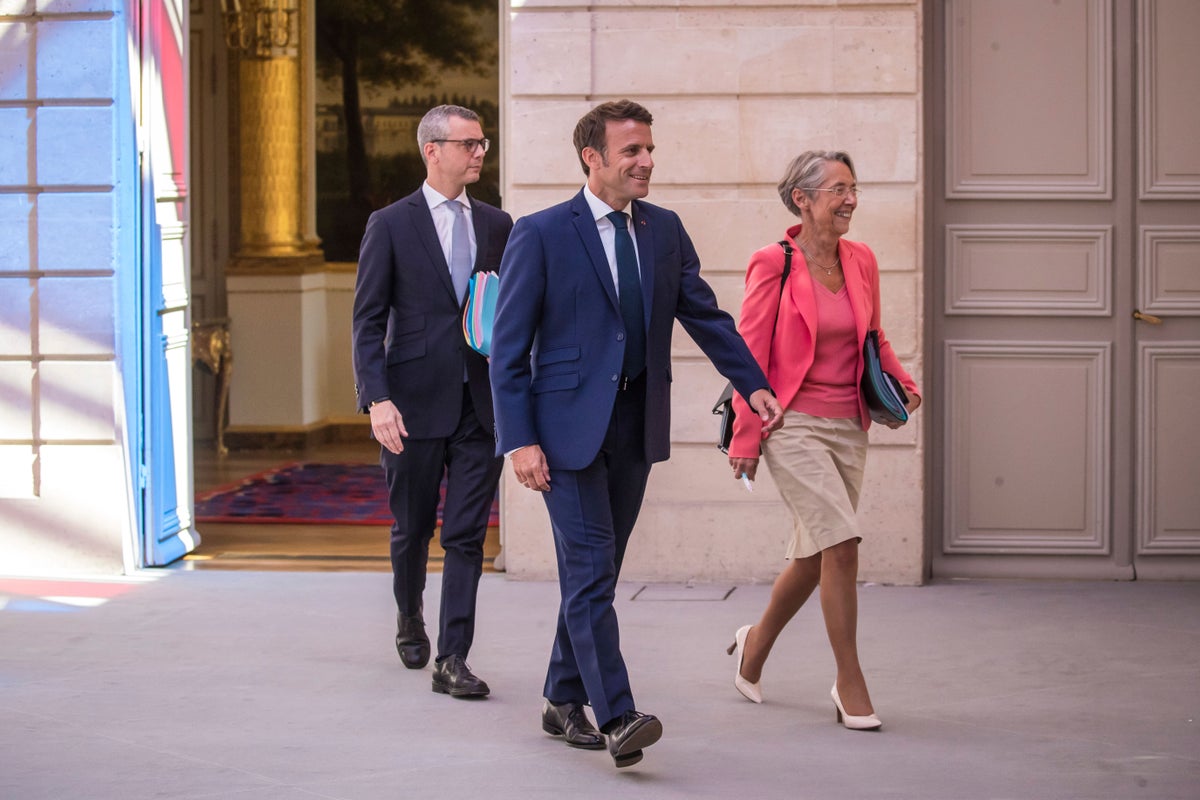
French Prime Minister Elisabeth Borne is to lay out her main priorities at parliament Wednesday after the government lost its majority in elections last month.
She is expected to face harsh criticism from lawmakers both from the left and from the right, who together now outnumber the government’s supporters at the National Assembly.
The leftist coalition, known as Nupes, has said it will trigger a no-confidence vote to symbolically mark its opposition to the government.
The move has very little chance of succeeding, because it is highly unlikely to get approval from more than half the lawmakers at the National Assembly. The major opposition group, the far-right National Rally, has already said it will abstain.
If confirmed, the no-confidence vote would be organized within a week, but no earlier than Friday afternoon.
Borne's office said her speech Wednesday will focus on key topics including boosting jobs, tackling climate-related issues, providing all people with equal opportunities and how to bolster France's sovereignty at a time when the war in Ukraine is deeply affecting European economies.
The government’s first move is expected to focus on purchasing power to help struggling households amid rising energy and food prices.
The bill is to be presented in a Cabinet meeting on Thursday. It is to include a series of measures worth 25 billion euros ($25.5 billion) including increasing pensions and some welfare payments by 4%.
Borne’s speech comes after President Emmanuel Macron’s alliance suffered big losses in recent parliamentary elections. The centrist alliance, Together!, won the most seats in the National Assembly but fell 44 seats short of a majority as voters opted for the leftist coalition or the far right.
Having the largest group of lawmakers, Macron’s government still has the ability to rule, but only by bargaining with opposition legislators. To prevent deadlock, Macron’s party and allies want to negotiate compromises on a case-by-case basis with some opposition lawmakers.
On Monday, Macron rearranged his Cabinet and called on his new government to “stand strong” amid Russia’s war in Ukraine and “transform” the heavily indebted French economy.
Three out of Macron’s 15 ministers failed to keep their seats in last month's parliamentary elections and were replaced.
In addition, Damien Abad, who was minister of policies for the disabled and is under investigation for rape and sexual misconduct, was also replaced. Abad firmly denies the allegations.







